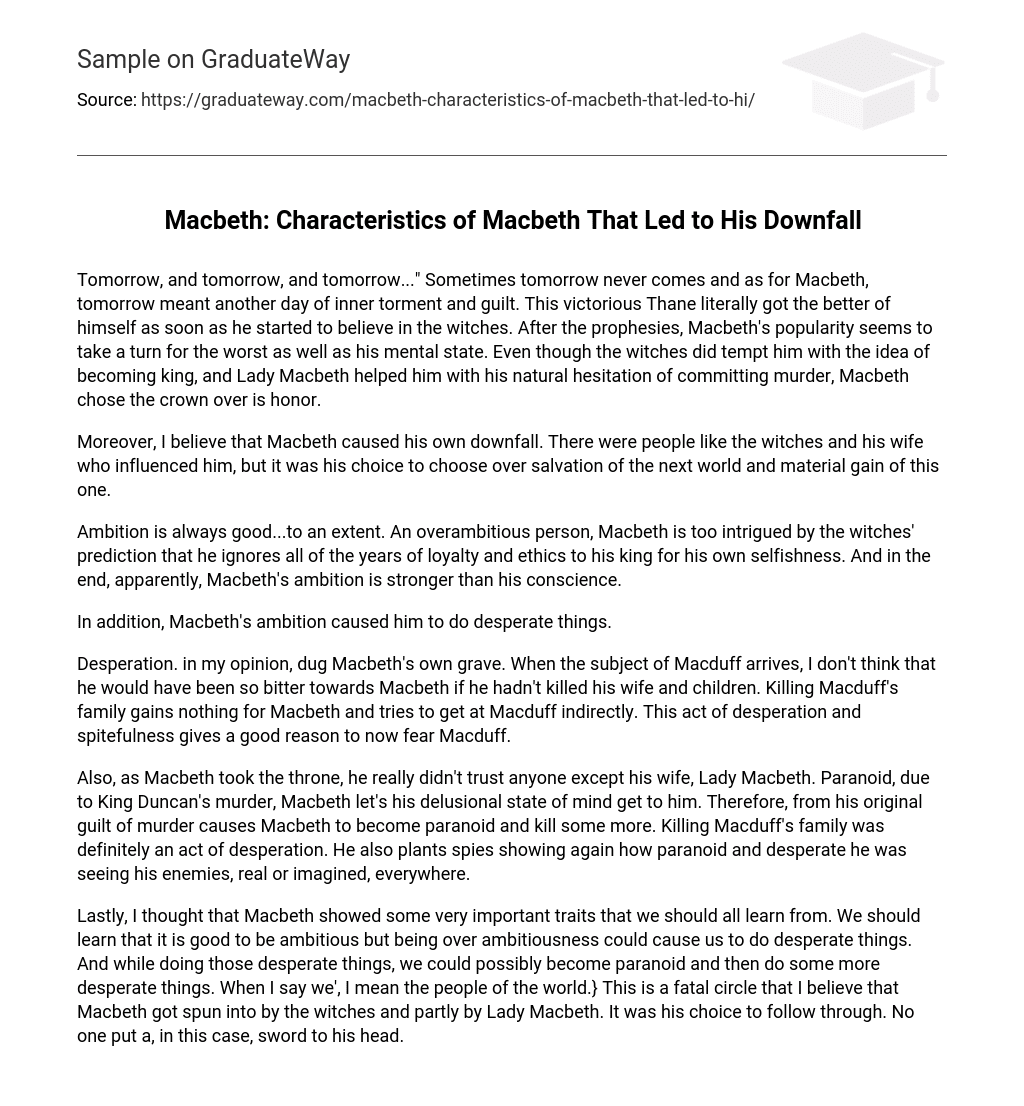Tomorrow, and tomorrow, and tomorrow…” In some instances, tomorrow never comes and for Macbeth, tomorrow represented another day of inner torment and guilt. This victorious Thane truly burdened himself once he started believing in the witches. As he followed their prophecies, Macbeth’s position seemed to decline along with his mental state. Despite the witches tempting him with the idea of becoming king and Lady Macbeth encouraging his hesitance to kill, Macbeth chose power over his moral values.
Moreover, I am of the opinion that Macbeth bears the blame for his own downfall. Although he was influenced by both the witches and his wife, it ultimately fell upon Macbeth to decide whether to prioritize earthly success over ensuring his salvation in the afterlife.
Despite the potential advantages of ambition, Macbeth’s insatiable desire for power leads him to become enthralled by the witches’ prophecy. As a result, he disregards his loyalty and moral principles towards his king in order to pursue his own selfish ambitions. Ultimately, it appears that Macbeth’s ambition overwhelms his conscience.
In addition, Macbeth’s ambition drove him to partake in desperate deeds.
In my view, Macbeth’s own grave was dug by desperation. If he hadn’t killed Macduff’s wife and children, I believe he wouldn’t have harbored such bitterness towards Macbeth when the subject of Macduff arose. Macbeth gains nothing from killing Macduff’s family, and instead attempts to harm Macduff indirectly. This desperate and spiteful act now gives us a valid reason to fear Macduff.
As Macbeth assumes the throne, his trust is limited to his wife, Lady Macbeth. He becomes increasingly paranoid after the murder of King Duncan, allowing his delusions to consume him. Consequently, his initial guilt leads him to become even more paranoid and commit further acts of murder. The killing of Macduff’s family is a clear example of his desperate state. Furthermore, he resorts to placing spies, demonstrating his pervasive paranoia and desperation in perceiving enemies, whether real or imagined.
On the topic of Macbeth, it is worth noting some important qualities that we can all gain wisdom from. It is beneficial to have ambition, but excessive ambition may lead us to commit desperate actions. Furthermore, in the process of engaging in those desperate acts, we may develop a sense of paranoia and resort to even more desperate measures. By “we,” I am referring to the global population. This forms a destructive cycle, which I believe Macbeth was trapped in due to the influence of the witches and partially Lady Macbeth. However, it was ultimately his decision to follow through with these actions; no one forced him, metaphorically speaking.





